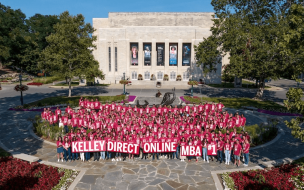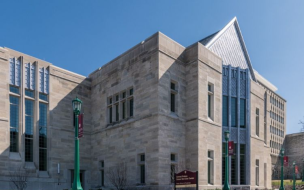A significant 43% of respondents to the Tomorrow's MBA survey—coordinated by education marketing specialists Carrington Crisp in association with the European Foundation for Management Development (EFMD)—revealed a preference for hybrid or blended study, while 33% selected full-time on-campus learning. This marked a significant change from last year’s survey, when 66% said they would prefer hybrid or blended study and just 22% wanted to study full-time on-campus.
The survey attributed the waning popularity of hybrid (15%) and blended (28%) learning—both of which Tomorrow's MBA defines as involving a mix of on-campus and online delivery—to a renewed desire for social interaction, engaging classroom experiences, and in-person networking opportunities.
Meanwhile, the study linked the increased popularity of full-time, on-campus learning to progress made since the Covid pandemic, noting that after prolonged periods of remote work and online learning, prospective MBA students crave in-person connection and a sense of community.
In line with this shift, the number of prospective students opting for entirely online MBA programs also declined in this year's study, with only 8% of the 1,908 participants surveyed preferring this option. While online MBA programs offer many benefits, most notably increased flexibility, the survey suggested that declining interest is due to the perceived limitations of virtual learning—such as reduced opportunities for social interaction, increased feelings of isolation, and fewer avenues for building professional networks.
Prospective students’ preferred approaches to online learning varied among those who chose to study all or part of their MBA online. Self-directed learning—where students progress at their own pace—was favored by 28%, making it slightly more popular than synchronous learning, which requires real-time interaction with professors via video conferencing and was preferred by 24% of students.
However, a combination involving self-directed learning that's delivered via both synchronous and asynchronous channels came out on top (48%) among survey respondents. The study highlighted that prospective MBA students enjoy the autonomy and flexibility this combination provides, seeing value in both learning approaches.
The study also investigated participants' preferences regarding the formatting and duration of MBA or EMBA programs. For those considering part-time study, attending classes two to three evenings per week was the most popular option (36%), followed by attending classes on a Friday or Saturday once a month (31%).
Regarding duration, 24-months was the most popular choice (33%), closely followed by 18-months (28%). For those surveyed, these structures offered the greatest work-life balance.
The survey concluded that prospective MBA students’ evolving preferences highlight the need for business schools to offer versatile programs which can be tailored to meet each individual's needs and lifestyle demands, while still maintaining the quality of their education.
Elsewhere, the Tomorrow's MBA report also highlighted changing demand among prospective students when it came to program types, with applicants searching for more specialized degrees that catered to skill areas such as artificial intelligence, and increasingly searching for degrees in their home countries rather than overseas.








